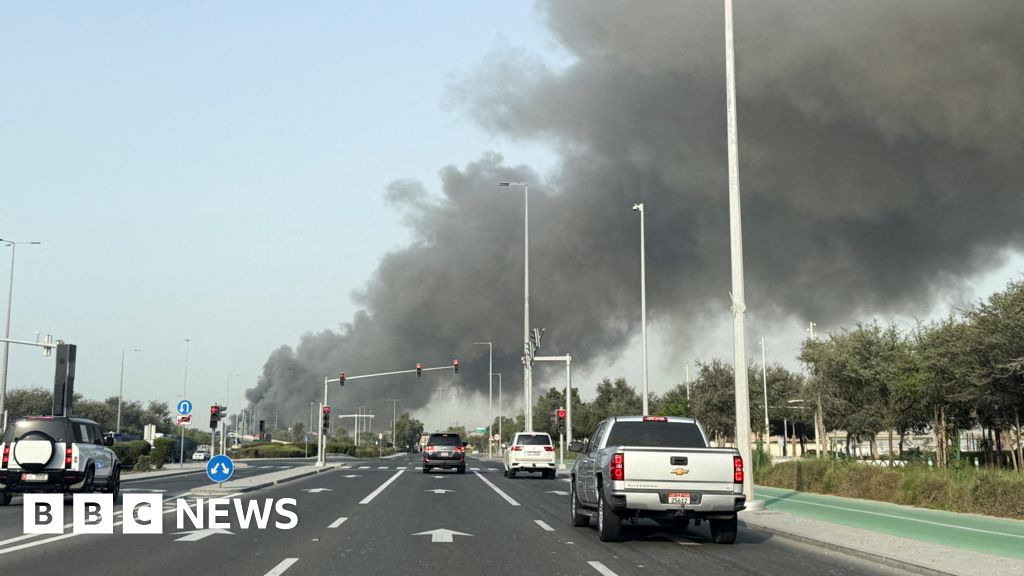"Iran will not surrender and will continue to defend itself," Ayatollah Ali Khamenei, the supreme leader of Iran, told the public in a televised speech this week, following days of Israeli bombing and Iran's retaliatory strikes.
His exact location is unclear. Rumors and hints from the US and the Israeli governments indicate that he could be personally targeted at some point by an Israeli air strike. If Khamenei is assassinated, he would share the fate of many high-ranking members of his regime who have been killed in recent days.
And this has prompted many to ask — how can a regime that fails to protect its own top officials be trusted to protect Iran's borders?
"Despite all claims [by the Iranian government] about missile defense or protecting command centers, the absolute inefficiency of this regime has become apparent to the public," exiled Iran expert and sociologist Majid Golpour told DW.
Iran's Khamenei defies Trump's call to surrender
Could this weakness bring about the collapse of the Islamist regime? According to Golpour, this mostly depends on its political alternative.
"Now is the time for the nation's political forces to present a common charter — both against the ruling system and against outside threats. But there are still no concrete plans, functioning coalitions and viable structures inside the opposition," Golpour said.
Opposition in Iran battered for decades
But finding common ground is easier said than done. Even outside Iran, opponents of the regime are split into rival groups. One faction of the Iranian diaspora regards the eldest son of the ousted Shah Mohammed Reza Pahlavi as a possible interim ruler — or at least a symbol of national unity.
Since the 1979 Islamic Revolution, Prince Reza Pahlavi has mostly been living in the US and has tried to position himself as a political leader and opponent of the Islamic Republic. He has no political organization active on Iranian soil.
And that's no surprise — the Islamist regime has been suppressing dissenting voices inside Iran for many decades. Any person posing a possible threat to the regime is discredited, harassed, arrested and often sentenced to long prison terms.
Still, political scientist Shukriya Bradost, a non-resident scholar at the Middle East Institute, a US-based think tank, believes there is a chance of a political shift.
Iranians protest Israeli strikes
Bradost believes that a political vacuum could emerge if the regime gets seriously weakened. This would allow opposition groups to organize protests and strikes, and enact wide-reaching change.
Will war make Iranians more patriotic?
A deciding factor during wartime is the feeling of patriotism linking Iranians to their country. This sense of unity helped the Islamist regime stabilize after the 1979 revolution. When Iraq, under Saddam Hussein, attacked Iran in 1980, people rallied behind the country and persevered through eight years of war that cost the country up to 1 million Iranian lives.
The Islamist leaders are once again using nationalist rhetoric to firm up support.
"The Islamic Republic has recognized that people no longer identify with the idea of a 'nation of Islam,' but rather see themselves as citizens of Iran. No sensible person can be fooled by this staged nationalism," political scientist and journalist Shahran Tabari told DW.
It is however difficult to ascertain what people of Iran feel at this time — except for fear and anger about the escalating conflict happening without their consent.
Waiting for Trump's decision
Nobel Peace Prize laureate Narges Mohammadi, famous for her fight for women's rights in Iran, recently called on Israel to stop its attacks and urged a truce across the Middle East.
"I want to ask President Trump — not only not to join this war, but to stop it," she said in a video message carried by US broadcaster CNN.
Meanwhile, the West seems to be divided on Iran and without a clear strategy for a regime change. While some voices in the US, like former National Security Adviser John Bolton, call for a military intervention, US President Donald Trump seem to be hesitant — for now.
Iran's exiled prince urges global support for Iranian people
This article was originally published in German

 8 months ago
8
8 months ago
8








